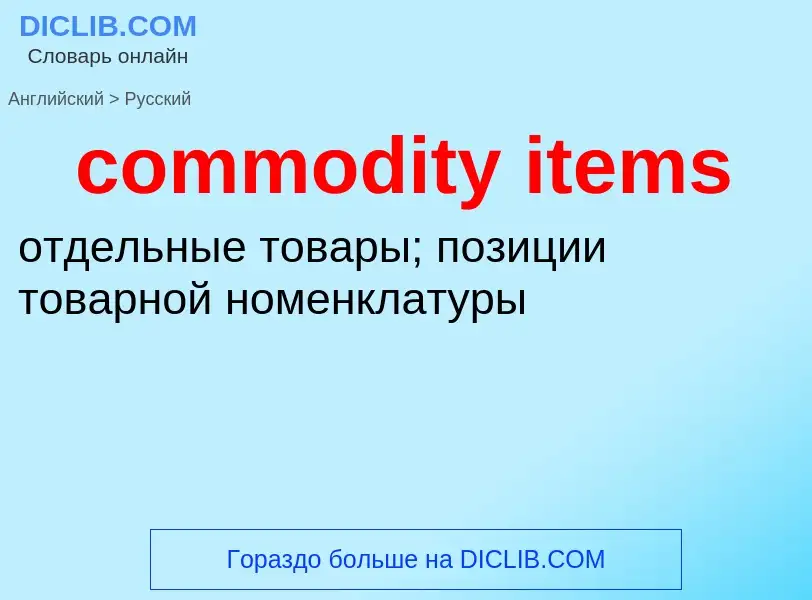Traducción y análisis de palabras por inteligencia artificial ChatGPT
En esta página puede obtener un análisis detallado de una palabra o frase, producido utilizando la mejor tecnología de inteligencia artificial hasta la fecha:
- cómo se usa la palabra
- frecuencia de uso
- se utiliza con más frecuencia en el habla oral o escrita
- opciones de traducción
- ejemplos de uso (varias frases con traducción)
- etimología
commodity items - traducción al ruso
Definición
Wikipedia

In economics, a commodity is an economic good, usually a resource, that has full or substantial fungibility: that is, the market treats instances of the good as equivalent or nearly so with no regard to who produced them.
The price of a commodity good is typically determined as a function of its market as a whole: well-established physical commodities have actively traded spot and derivative markets. The wide availability of commodities typically leads to smaller profit margins and diminishes the importance of factors (such as brand name) other than price.
Most commodities are raw materials, basic resources, agricultural, or mining products, such as iron ore, sugar, or grains like rice and wheat. Commodities can also be mass-produced unspecialized products such as chemicals and computer memory. Popular commodities include crude oil, corn, and gold.
Other definitions of commodity include something useful or valued and an alternative term for an economic good or service available for purchase in the market. In such standard works as Alfred Marshall's Principles of Economics (1920) and Léon Walras's Elements of Pure Economics ([1926] 1954) 'commodity' serves as general term for an economic good or service.


